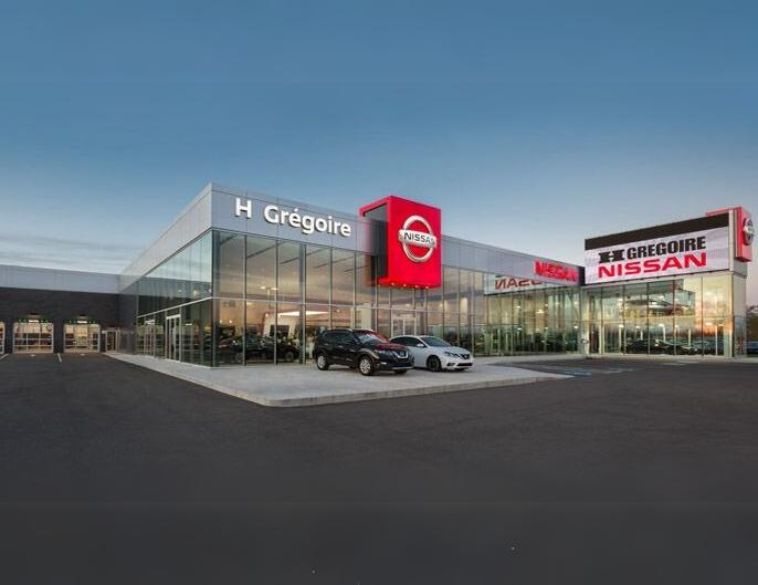Industry experts talk about the economy, the auto industry, trends, technology, and beyond.
The latest instalment of the very popular TalkAUTO serious, hosted by J.D. Power and Canadian Black Book, took place on Nov. 7 in Vaughan, Ontario. Hundreds of industry professionals gathered to hear the latest on trends, market reports and forecasts, as well as a peak into the future.
The program began with a short presentation by J.D. Ney, Automotive Industry Practice Leader, Canada, J.D. Power. Ney talked about disruptors, explaining the pre-requisites for market disruption and why the auto industry hasn’t been hit as hard as some other industries, yet.
However, change is coming, Ney explained, as the buyer changes. He told the audience about his five-year-old who doesn’t understand why a favourite children’s program wasn’t available to watch at grandma’s house. As it turns out, Grandma didn’t have Netflix, which meant waiting for the show to air at a specific time, and on a specific channel on TV.
Ney’s five-year-old is a future car buyer, growing up in an on-demand world, which means tomorrow’s car shoppers will want a more on-demand purchasing experience, thus forcing dealers to rethink the way they interact with customers.
Global market overview
Jeff Schuster, President, Americas Operations and Global Vehicle Forecasts, LMC Automotive talked about the softening in global auto sales, and how the new USMCA agreement will increase costs moving forward.
Globally, mature markets are flat, Schuster explained, with growth in sales expected to come mostly from emerging markets. In fact, the auto industry is relying on those emerging markets for growth.
Projection for Battery Electric Vehicles through 2030 is varied with China and Europe expected to grow the most in demand, while North America will remain around the one percent mark.
Schuster also talked about autonomous vehicles, explaining that there are still a lot of issues to deal with before we see any significant volume of these vehicles on our roads, likely by 2050. The technology will evolve quickly but we’ll see level four and five autonomous vehicles later, rather than sooner.
In Canada, our annual sales figures are likely to hover around the two million units a year level. As far as what consumers are buying, the latest statistics show that truck sales are up 1.4 percent while car sales are down over 5 percent. Overall Canadian sales are expected to be down this year 1.6 percent, on the retail side.
Canadian long term vehicle demand remains flat through 2025. SUV sales will grow, while sedan, wagon and hatchback sales will decline. Pickups will remain stable.
The digital experience
Chris Hodges, VP, Customer Experience and Digital Solutions, J.D. Power explained how most of today’s dealers are lacking in the quality of the digital experience they offer customers.
He said that a great customer experience, overall, translates into 63 percent higher loyalty, $259 more in sales per transaction, and increased advocacy. In other words, the better the experience, the more likely that a customer will recommend your store to their friends and family.
What can dealers do? Listen to customer feedback and actually do something with the information you get from customers. Know your customers—who they are, their lifestyles, what they want. Engage with customers by responding to feedback, letting them know that they’re being heard. This is a must online and on social media, as well.
Dealer panel
The TalkAUTO dealer panel discussed a broad range of timely issues. The panel was made up of Yves Varin (moderator), National Director of Business Development, Canadian Black Book, along with panelists Shahin Alizadeh, President & CEO, Downtown Automotive Group Inc.; Martin Taillandier, General Manager, BMW Canbec; Michael Wyant, COO, Wyant Group; and Greg Warkentin, General Manager, Bayfield Ford.
One of the topics on everyone’s mind was the new subscription model, with panelists agreeing that the OE needs to support the dealer with this new way of doing business, if subscription models are to work. After a customer brings an SUV back to the store, for example, after six months on the road during the winter, what kind of assistance will the OE be willing to offer as the vehicle moves on to the next stage?
The panel also discussed the future of bricks and mortar vs. online transactions, with all agreeing that the consumer expects a seamless and transparent transaction after they complete their online research and proceed to your store. That’s why it’s critical for dealers to blend the digital and in-store experience into one continuous transaction.
Residual values
Brian Murphy, VP, Research & Editorial, Canadian Black Book explained that things are going well in our industry. Although new car sales are down 1.6 percent YTD, they’re still remarkably strong. We are likely to make it to 2 million units by the end of 2018, he said, but only by a slim margin.
Sales are good because the economy is good. Unemployment is at 5.8 percent and is expected to go down in 2019. Consumer confidence is up, especially after the USMCA deal was announced.
Compact crossovers continue to do well, and compact cars are seeing a renewed interest by consumers. Full-size pickups are doing very well and luxury cars are stable.
As far as leasing goes, Murphy said that in the next few years almost double the number of cars will be coming back off lease. The impact on the industry will depend on how these returns are managed. Expect to see prices go down.
He also said that interest rates are going to continue to climb, and that we can expect to see 3 percent within the next 12 months, which will have an impact on auto sales overall.
Predicting the future
The morning session concluded with a presentation by Sheryl Connelly, Global Trends and Futuring Manager with the Ford Motor Company. Connelly talked about the top ten trends currently making a big impact on the way consumers think:
- Edge of Reason. Because of the immense change in the world, politically, economically, and socially, people are overwhelmed and feel that the world is more divided.
- The Activist Awakening. Although people are overwhelmed, they feel they can make a difference. That’s why we’re seeing an increase in activism. People believe their actions can result in positive change. Wit that thought in mind, consumers want to know where companies stand on political issues. They’d rather pay more to buy a brand that they believe is not harmful to society.
- Minding the Gap. People are concerned about the growing gap between the rich and the poor. According to Oxfam the world’s richest 1 percent now have more wealth than the rest of the world’s population combined.
- The Compassionate Conscience. People are overwhelmed by the suffering in the world, yet they believe people are more compassionate than they used to be. They find it stressful to follow the daily news and feel guilty that they’re not doing more to make the world better.
- Mending the Mind. With so much stress, there’s more emphasis on mental well-being, as well as getting the rest and the sleep you need.
- Retail Therapy. The experience of shopping is more enjoyable than the actual purchase. You may buy something, but the high you get from that new item wears off within a few weeks or months,
- Helplessly Exposed. Consumers don’t want to share their personal information with companies. They want privacy. They find it creepy when companies know too much about them.
- Technology’s Tipping Point. Most adults believe artificial intelligence will do more harm than good. Many are hopeful about the future of autonomous vehicles.
- Singled Out. There are more single than married people in the wealthier parts of the world. The traditional family structure and career paths are gone, and 43 percent of millennials say they would support a marriage model if it had a two year trial period that could then be formalized, if the relationship was working, or dissolved, if not, but without the divorce paperwork.
- Big Plans for Big Cities. Most of the world’s population lives in cities and that trend is growing. The vast majority of people would like to see cities do more to make housing affordable. They would also gladly sacrifice parking spaces for more green spaces.



